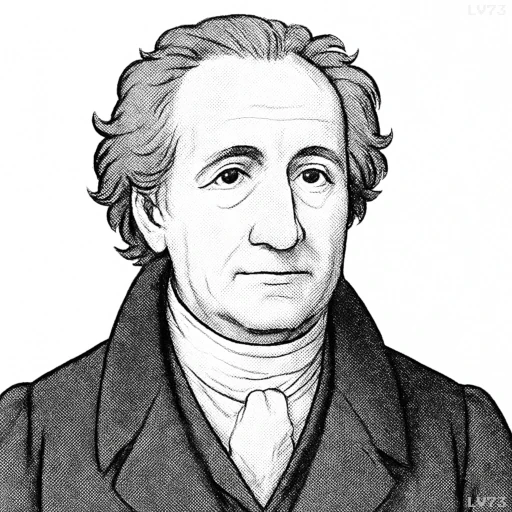“Music is either sacred or secular. The sacred agrees with its dignity, and here has its greatest effect on life, an effect that remains the same through all ages and epochs. Secular music should be cheerful throughout.”

- August 28, 1749 – March 22, 1832
- German
- Poet, playwright, novelist, philosopher, politician
table of contents
Quote
“Music is either sacred or secular. The sacred agrees with its dignity, and here has its greatest effect on life, an effect that remains the same through all ages and epochs. Secular music should be cheerful throughout.”
Explanation
Goethe distinguishes between two forms of music: sacred and secular, each serving a different purpose. Sacred music, which is linked to spirituality and religion, should maintain a sense of dignity, reflecting the reverence and sacredness of the themes it represents. This type of music has a timeless and profound effect on the human spirit, transcending historical and cultural differences to connect individuals to something greater than themselves. In contrast, secular music, which pertains to everyday life and human experiences outside of the religious realm, should be cheerful and uplifting, reflecting the joys, vitality, and lightheartedness of the human condition.
Historically, this idea aligns with Goethe’s views on the role of art in society, where he saw different forms of art fulfilling different functions. Sacred music (such as Gregorian chants, hymns, or religious symphonies) has historically played a significant role in religious rituals and in connecting people to the divine. It reflects solemnity, reverence, and contemplation, aiming to elevate the listener’s spirit. On the other hand, secular music, whether in the form of folk songs, classical compositions, or popular music, often aims to reflect the joys and emotions of daily life, providing a sense of enjoyment and relaxation.
In modern contexts, this distinction remains relevant in the way we approach different genres of music. For instance, classical music often carries the gravitas and dignity of sacred music, while genres like pop, rock, or dance music are more likely to be cheerful and celebratory. Both serve their purposes, one providing spiritual depth and connection, and the other offering enjoyment and an emotional outlet for everyday life.
Goethe’s words remind us that music, whether sacred or secular, serves an important role in enriching the human experience. Sacred music helps connect us to something timeless and spiritual, while secular music provides joy and an emotional connection to the present moment. Both are essential to the fullness of life and have enduring power across different eras and cultures.
Would you like to share your impressions or related stories about this quote in the comments section?




